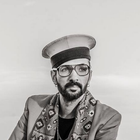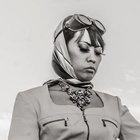Rust & Dust
Arka Kinari: Preparations for Sailing in Bali
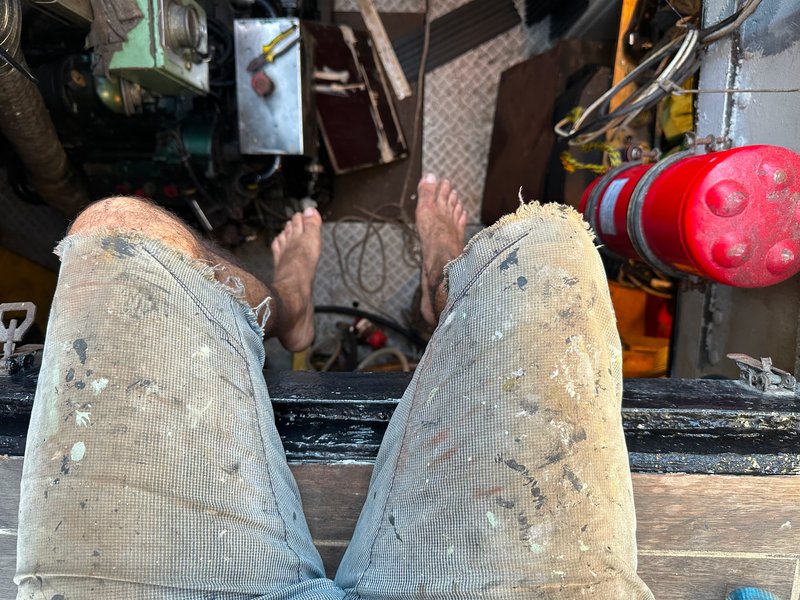
I turned my back on Arka Kinari for six months to compose an opera for La Monnaie in Brussels. Terrible things can happen to a ship in six months.
It grows a beard under the waterline, a beard of groping prehistoric sea ferns, mosses, grasses, and razor-sharp mussels. This fixed community then becomes a host to opportunistic nomads- shrimp, crabs, squids, and even a few lobsters now consider the bottom of our hull their home.
The situation is even worse above the waterline thanks to one tiny predator. Rust, our nemesis, the ship-killer, has eaten holes in the deck large enough to poke my fingers into the vulnerable interior. The tropics are fecund. Rust, like any other form of life, flourishes in this soupy equatorial mug.
As all the little creatures battled to revert our ship back to a state of nature, entropy attacked anything with an on/off switch. The main batteries are flat, the generator not starting, the solar panels delaminating, the radar schizophrenic.
For the first two days I ignore the problems and try to remember the romance of sea before immersing myself into the rust and dust. Then comes the grinders, wire wheels, hammers, and welders, to roughen hands grown soft from composing opera music in safe old Europe.
My arms are burned from sparks, eyes filled with irritating grit, but the biggest adversaries are the heat and humidity. I drink liters of water but never pee, any liquid added to the human body in these conditions cascades directly from your pores.
This is an inescapable part of life at sea, the battle to keep your home afloat, although we do have it worse than most. The owners of modern yachts complain way too much about caretaking one ton of fiberglass, while we’re responsible for seventy tons of WWII-vintage steel. Even the crews of giant cargo ships have it easier, because they don’t even bother to maintain after twenty years of service, the ships are beached in Bangladesh and ripped to pieces on an oily mudflat, the company buys a new one (another of the many hidden ecological costs of globalisation).
The days of filth and sweat are a potent physical reminder that it’s a very fine like between dream and nightmare, between blessing and curse. I chose this life, and thank god I didn’t know how hard it would be, because I’d never have knowingly committed to this insanity.
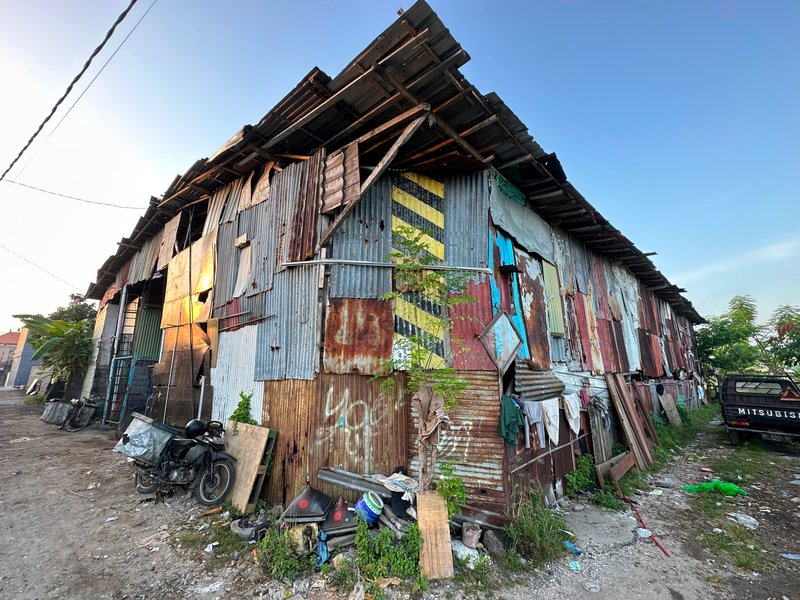
The pace of work accelerates over a month while anchored near Bali. New crew arrive and are thrown head-first into tasks. The last few days before sailing are sublime. The ship hums with activity and every minute is critical. Two people on deck are hauling someone aloft into the rigging, shouting instructions back and forth from the top of the mast. A boat is tied to our port side, pumping water into the tanks. On the starboard side is another boat bunkering the diesel. Our own dinghy is blazing back and forth from the dock, each journey carrying a hundred kilos of food. A team of hired welders are spraying sparks from the bow. I’ve lost track of who’s down in the engine room, fabricating parts, repairing pumps, fixing wiring. The deck is covered in boxes, bags, debris of a dozen simultaneous projects. I walk through it, trying to keep calm and surf the chaos, shifting languages and tasks every few seconds, one minute pulling a rope to raise someone aloft, next its knocking slag to inspect a weld, next checking the diesel for water, or checking the water for algae, making sure the provisions are stored sensibly, nervously checking the weather and re-checking the route.
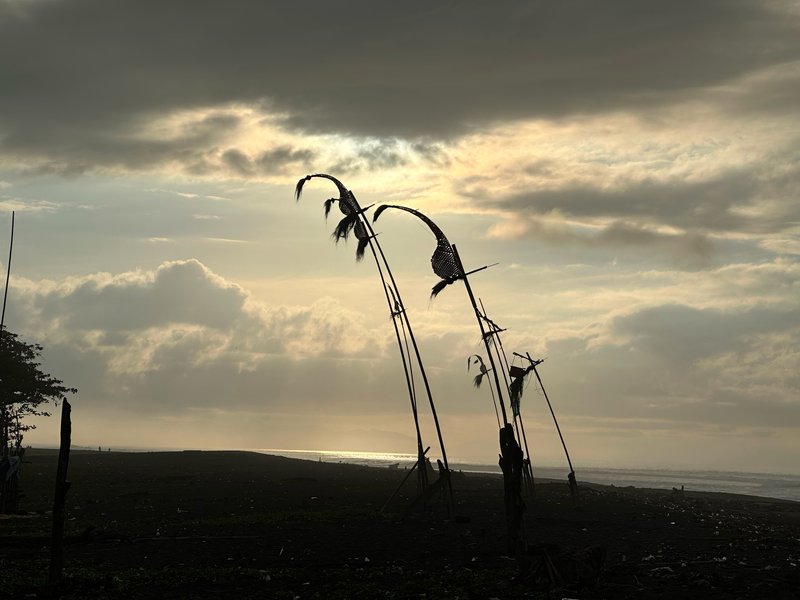
The day we’re supposed to sail a freak storm bashes south bali. The rain is stronger than the monsoon season, but this weather is a windfall by forcing us to stay an extra day… a precious gift of twenty-four hours to resolve all the loose ends and tidy the ship.
And then we finally do sail, into a sea still disturbed by the storm of yesterday, trying to leverage the last gasps of its wind. A documentary film team rides along for the first few hours, until being transferred to local fishing boats in a sketchy mid-sea transaction in the turbid Lombok strait.
The bow is aimed towards the island of Sulawesi, still three days over the horizon. Sulawesi’s bizarre outline looks more like a Rorschack test than a natural feature, it is a freak of geology, the exporter of the most prolific sea peoples the Bugis and Bajo, the home of Nova’s maternal ancestors, a poorly-charted and ever more poorly-understood ninth-largest island of this world’s seas. We’ll sail Sulawesi’s west coast from bottom to top, following the Wallace line which divides the Asian and Australian plates, keeping the monkeys to our left and the marsupials to our right.
Created: 09 Aug 2023 / Updated: 10 Aug 2023



